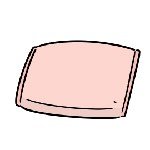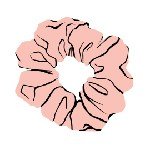What is Mulberry Silk?
Mulberry silk is made from mulberry silkworms reared in captivity. The entire production process has been carefully monitored. And the environment of the silkworm is also strictly controlled.
These allow for the larvae to spin silk threads that are rounder, more excellent, smoother, lighter, and more uniformly colored than any other type of silk in the world. Mulberry silk fibers are also firm, easily beating steel fibers of the same diameter in strength and durability.



What Is Momme And Thread Count?

What is Mommes in Silk Fabric
Momme [mom-ee] is a Japanese word used as a unit of weight measurement for real silk. Momme, often abbreviated as mm, is defined as the weight in pounds of a piece of fabric sized 45 inches x 100 yards. That is an incredibly long piece of fabric — about the length of a football field! The higher the momme, the heavier and denser the weave will be. In this way, momme is similar to thread count, which is commonly used to measure the weave of cotton sheets.
Thread count
Weaves of Silk
Our 22 Momme silk pillowcase has a thread count of 600+. Normally, the higher the momme weight, the more durable the weave. It also feels more luxurious and more suitable for heavy-duty use.
But the heavier the silk, the more opaque it becomes. This can vary even between the same kind of silk. Therefore, it does not mean that you must always buy silk products with higher momme weight. For instance, it would be too heavy to put on 25mm silk sleepwear for the night. Generally, all silk can be washed and the heavier ones can be washed repeatedly so a 22 momme silk pillowcase will last longer than a 19 momme one.
What does Grade 6A mean?
Silk quality is graded A, B, or C, with Grade A being the best. Grade A silk is the highest quality long strand silk from cocoons that are pearly white in colour.
It is very pure and can be unraveled without breaking.
Silk grades are also given a number. Grade A silk comes in A, 2A, 3A, 4A, 5A, and 6A.
Grade 6A is the finest quality. This means that a silk pillowcase made from Grade 6A silk will cost more because of the better quality silk used than a pillowcase made from A lower grade. However, at June Silk we aim to keep our prices fair.
Ethical & Sustainable
Silk has a very low water footprint and produces almost zero waste. Silk is biodegradable within a couple of years and does not emit toxins while is biodegrades unlike synthetic materials that can take hundreds of years to biodegrade, if at all.
Bringing silk back to local producers creates a livelihood for many small communities. The art of raising and growing domesticated silk worms is by nature, highly sustainable. The weavers create the silk using handlooms, zero powered energy.
We do not compromise on quality.
What Is The Difference Between Silk, Satin and Cotton?
SILK

Silk fabric is made from a natural protein fiber produced from silkworms, some forms of which can be woven into textiles. The shimmering appearance of silk is due to the triangular prism-like structure of the silk fibre, which allows silk cloth to refract incoming light at different angles, thus producing different colours. High-quality silk is a fabric that has been manufactured for thousands of years and has maintained its reputation as a symbol of luxury. Mulberry silk is the highest quality silk available for purchase.
SATIN

Cotton is a soft, fluffy staple fiber that grows in a boll, or protective case, around the seeds of the cotton plants. The fiber is almost pure cellulose. Under natural conditions, the cotton bolls will increase the dispersal of the seeds. The fiber is most often spun into yarn or thread and used to make a soft, breathable textile. For centuries, Egyptian cotton has been considered the best in the world.
COTTON

Satin, on the other hand, is a man-made material made up of a mixture of mostly nylon and polyester, an industrially produced fibre made from petroleum, so it is essentially plastic. It can be mass-produced and is a lot cheaper than silk because of this. Compared to silk’s smooth and light feel on the skin, polyester is hard, brittle and not very breathable at all. Satin, while also smooth, is also somewhat effective in reducing morning hair and sleep wrinkles, but you will not get the same benefits as silk purely down to the what the fabric is made of.
How to Identify Real Silk
| Genuine silk | Fake silk | |
| Flames | Burning genuine silk produces a smell very similar to that of burning human hair. The flame is close to invisible when burning the edge of the real silk fabric. Very soon after the flame source is taken away from the fabric, the silk will self-extinguish. | The ash from burning is black, crispy and turns to powder easily when grinded. |
| Ashes | Most fake silk are in fact petroleum based polyester products. When burned, these materials tend to combust rapidly in intense flames, and give a smell of burning plastic. | The ash of fake silk tend to be sticky, twisted, and difficult to break apart. |
What Makes Silk So Great?
Silk is the King (or Queen) of fabrics, so it’s no wonder it has many benefits that give it this most deserved title. Here are a few reasons why you should make the switch to silk.
1. 100% Natural Fiber
Silk protein is made of strings of amino acids with the same ph level as our skin. It is naturally hypoallergenic. Natural mulberry silk contains sericin, a protein that reduces the possibility of an allergic reaction. Thus, it is beneficial for those who suffer sensitive skin and itchy skin, such as (rosacea and eczema).


2. Anti Aging & Reduce Hair Breakage
Do you sometimes wake up with creases on your face? Rougher material, like cotton, is a very absorbent fabric that draws moisture from your face and hair. Silk doesn’t absorb moisture as much, and also reduces friction between your skin and the pillow.
The natural properties of silk, including its smooth surface, can help reduce friction which often causes damage, such as split ends. Hence, you’ll wake up with nourished, tangle-free hair instead of fragile hair!
3. Enhance Sleep
The temperature regulating properties of the silk pillowcase allows you to keep cool at all times during the night without the discomfort associated with fluctuating temperature and the constant tossing and turning for restful night sleep. The result is your body stays cool in summer and warm in winter.


How To Care Silk
No matter what kind of silk products, in order to maintain the luster and texture of silk,you need to pay attention to it when you care.
We need to emphasize that silk is hand wash and dry clean in traditional. Ours are of the highest quality so they are machine washable, but they are still silk and need as much care as we can give them.
As to the care of silk products, please follow the instructions below.
*Handwashing is always the best and safest method for washing particularly delicate items like silk. (some may prefer DRY CLEAN).
1. Fill a basin with <= lukewarm water 30°C/86°F.
2.Add a few drops of special detergent for the silk delicates
3. Let the items soak for three minutes.
4. Agitate the delicates around in the water.
5. Rinse the silk item <= lukewarm water (30°C/86°F).
6. Use a towel to soak up water after the wash.
7. Hang to dry.
*For those without the time, patience, or just physically unable to hand-wash silk, our products can withstand machine washing as well.
1. Sort the laundry.
2. Use a protective mesh bag.
3. Add the proper amount of neutral or special detergent for silk to the machine.
4. Start a delicate cycle.
Machine wash cold on a gentle cycle. Most washing tools should have a delicate setting. Some machines even have a silk setting specifically for cleaning silk washed out.
5. Minimize spin time.
6. Use a towel to soak up water after the wash.
7.Hang item or lay flat to dry.
Not all silk products are made equal.
At June Silk, we use the highest quality Grade 6A 22 Momme Mulberry Silk on all of our products it is dye safe and hypoallergenic. Our products are OEKO-TEX Standard 100, tested for harmful substances. You can check our label here:

Questions? We can help. Email us care@junesilk.com or Whatsapp +65 8830 2664.







